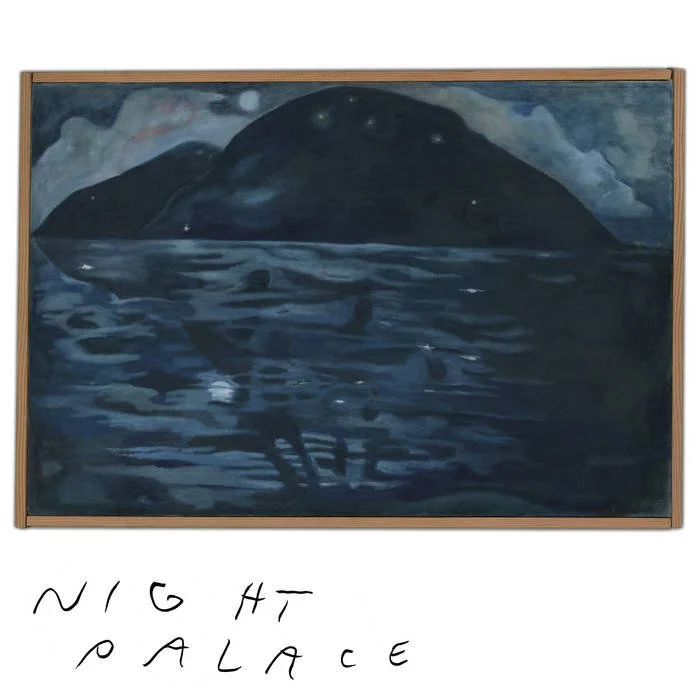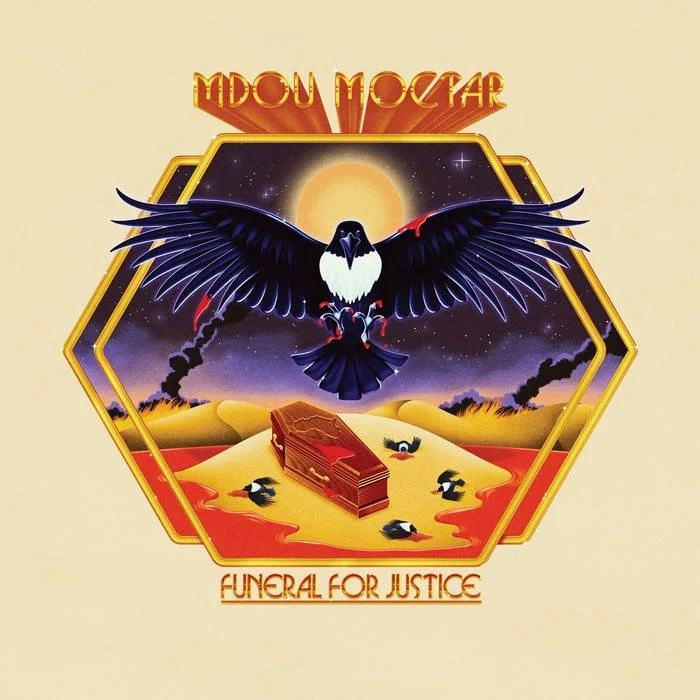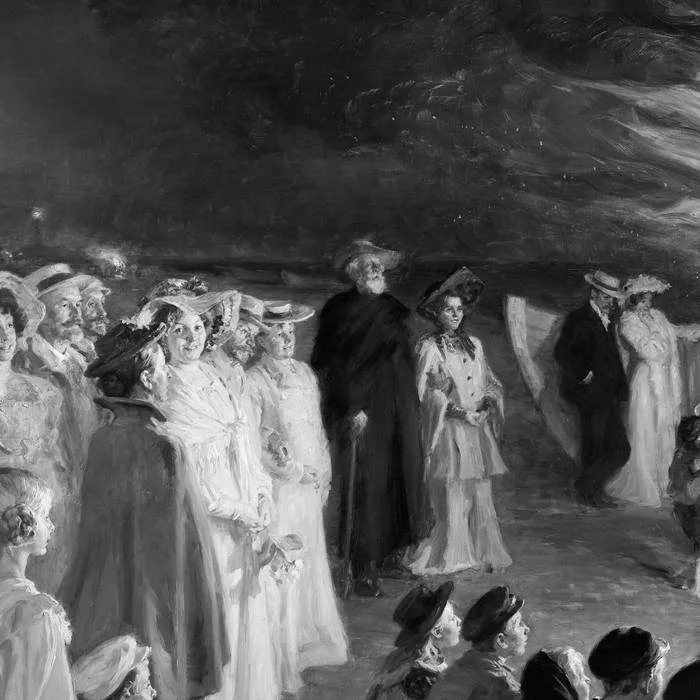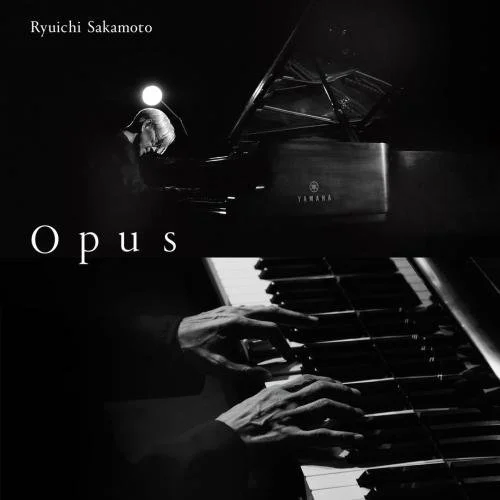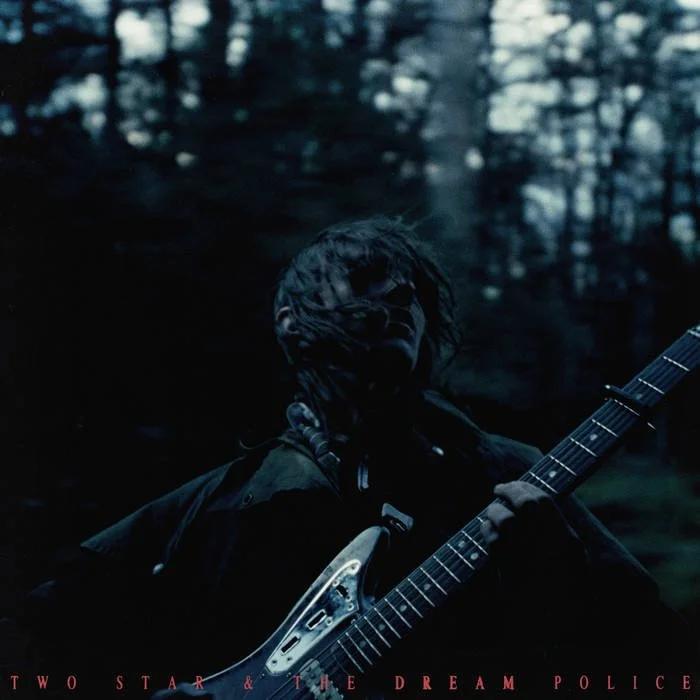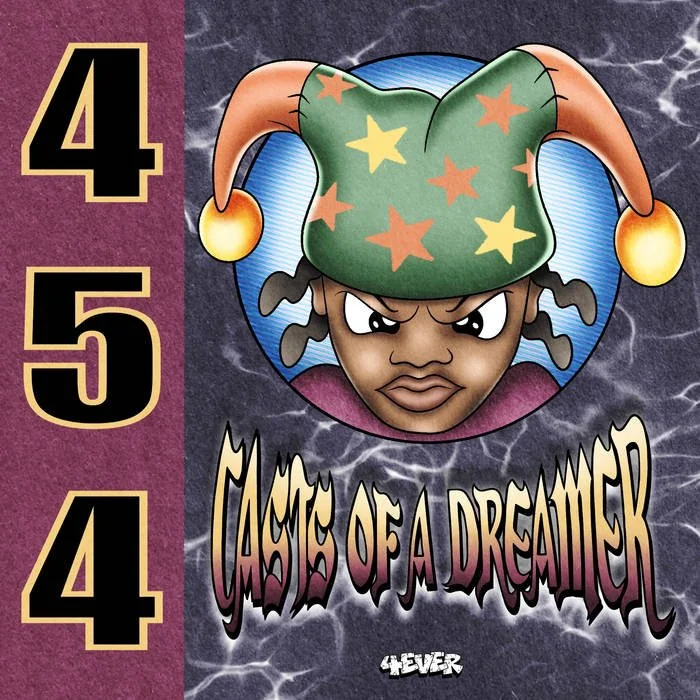Favorite Albums of 2024
Last year was one of my favorite years in music. If there was a common thread, it’s that artists threw out genres and even song structures, trusting their instincts to lead them to the fullest expression of their ideas. In ever-changing order, here are my ten favorite albums of 2024.
Ten
MJ Lenderman: Manning Fireworks
Training his eye on the absurdities of suburban America, MJ Lenderman’s lyrics read like dispatches from a dying empire: “We sat under a half-mast McDonald's flag;” “Don't move to New York City, babe/It's gonna change the way you dress;” and my personal favorite, “You need to learn/How to behave in groups.” Just two records in, his lyrical economy already marks him as a preeminent everypoet. But what sets him apart is how plain fun his songs are to sing. Look, I love Jason Molina and David Berman as much as the next third-wave-coffee-shop-dwelling guy with a mustache, but play an alt-country jam in the wrong car and you’ll lose your aux cord privileges. Not so with Lenderman. Manning Fireworks buoys songs with catchy guitar and gilds each one-liner with a melody so infectious, the first listen will have you wanting to sing along with everyone else.
Nine
Mount Eerie: Night Palace
After a six-year hiatus as Mount Eerie, Night Palace finds Phil Elverum doing roughly what you’d expect: Smoldering at the sink. Falling in love with the dying light in the kitchen. Humming a song he heard in a dream. Talking to a bird. Talking to a fish. Talking to another fish that sounds like Jeff Bridges. Sweeping, noticing the bristles that fall off the broom, and pondering a little too hard about it. Mistaking waves or wind or trees for whalesong. Contemplating the murder of Indigenous people and the stolen land on which his Washington home now stands. But most refreshing is what Elverum is still not doing—settling for an easy answer or a forced metaphor. Drawing on sounds and ideas from across his career, Night Palace lifts him to a slightly higher vantage point. For him, a little more perspective is enough.
Eight
Skee Mask: Resort
Few DJs glide between styles as nimbly as Skee Mask. While 2016’s “Shady Jibbin’” feels like an IDM-drenched brain workout, the supercharged four-on-the-floor beat of 2019’s “Trackheadz” aims to get your feet stomping so hard the club walls shake. On Resort, he seamlessly fuses these sounds and more. This sort of genre-hopping would make an electronic music purist squirm in his audio-enhanced gaming chair, but to the untrained ear like mine, it just means you get many moods packed into one disc.
Album opener “Hedwig Transformation Group” is an aid for sleepless nights, the gentle swell of a synth tide beckoning you to relive fond memories or finally get serious about your summer travel goals. “Element” is suited for 3 p.m. brainstorm sessions at your desk, each whip-crack of the bass making you rethink needing that second cup of coffee. The centerpiece here is “Daytime Gamer,” perfect for back porch chats while swaying along with the rippling breakbeat. With so many genres living harmoniously, Resort is proof that when you make music this good, nobody cares what genre you call it.
Seven
villagerrr: Tear Your Heart Out
I’d say villagerrr’s Mark Allen Scott is the darling of the Columbus DIY scene, but it almost feels untrue now—Tear Your Heart Out vaulted him onto the national radar. If you’ve listened to the binful of records he’s released in just three years, his rise isn’t surprising. His earlier work, full of layered miniatures reminiscent of that other Mark from Ohio, is built for long drives and crowded basements. But here, Scott clarifies his sound for the main stage. The production adds polish without losing any homegrown charm; the track “Car Heart” offers a peek into the process. Describing another DIY musician looking for his signature sound, Scott sings: “When will they hear you, when will you be a star?/Remember dreaming was fun?” But the tone isn’t judgmental, just reflective. Scott is realizing he doesn’t want to compromise. It’s a steadfast proclamation: villagerrr’s moving forward, but he’s set on charting his own course.
Six
Mdou Moctar: Funeral for Justice
While Mdou Moctar generously shares the music of Tuareg culture with new listeners around the globe, his music offers another sound that hits closer to home—the golden age of guitar rock reimagined. Reaching back to a time that wasn’t afraid of a guitar solo, Funeral for Justice is classic rock updated with intricate shredding from the heart of the Sahara desert. If you look closely, you can still see the heat lines spinning off. “Sousoume Tamacheq” lets the engine rev before sputtering forward like a war machine in a Black Sabbath song. The blistering guitar work on “Imouhar” recalls early Smashing Pumpkins before the allure of grunge nonchalance beat the Boston out of them.
But for all the modernizing, Funeral for Justice honors music’s roots in Tuareg tradition as a political tool. The title track issues a burning plea to the leaders of African countries: “Occupiers are carving up your lands while you watch/Gallantly marching all over your resources/Why is that? When your rights are trodden upon.” For global listeners wary of the colonial forces pooling more and more power, the message hits as close to home as the music.
Five
Chanel Beads: Your Day Will Come
Remember in the “Only You” music video when Portishead’s Beth Gibbons sings while suspended in a giant water tank? Chanel Beads asks what would happen if the entire band miked up and actually played there, fully submerged—would it sound cool? Your Day Will Come offers a reverberating yes. From the opening notes, a heavy dose of distortion gives the production an uncanny feel, rendering familiar instruments just out of reach as if wafting up from underwater pool speakers. A pitched-up violin and snippets from what sounds like the Excel text-to-voice feature heighten the alien feeling. That’s why, when Shane Lavers’ beautifully treated vocals utter lyrics that resonate with your daily life, it all hits that much harder.
Four
Ryuichi Sakamoto: Opus
In the 2017 documentary Coda, Ryuichi Sakamoto holds a mic to a warbling stream. Later, he stands in a storm with a bucket over his head, listening to the rain buffeting the plastic. In the aftermath of two cancer diagnoses, Sakamoto was searching for what he called a perpetual sound—one that, unlike piano notes, would never fade away. “The world is full of sounds. We don’t normally hear them as ‘music’. But the sounds are actually very interesting, musically. So I have a strong desire to incorporate them into my work.”
It’s hard not to recall these words while watching Opus, the live concert film of Sakamoto’s final recital. As he plays arrangements of songs spanning his Yellow Magic Orchestra and solo careers, you can hear his labored breathing and see him grimace while reaching to hit piano keys. While we’ll never know whether he found the new sound he was searching for, the intimacy of Opus offers an opportunity to hear his music as if for the first time again.
Three
Mk.gee: Two Star & The Dream Police
If you’ve seen Mk.gee’s Jimmy Kimmel performance, you’ve witnessed modern magic. Emerging from a lone pillar of light and smoke, Mk.gee and two other shadowy figures cast a spellbinding flurry of guitar, drum machine, and saxophone. The source of each sound is obscured, and only the odd lyric and a passionate yelp cut through. The effect is intended: Mk.gee doesn't want his music to make sense, only to make you feel. On Two Star & The Dream Police, he uses distortion, fluid song structures, and a host of textures to do it.
“How many miles” starts with loping synths that recall The Blue Nile's "Downtown Lights", creating a springboard for a warm blast of guitar and a fervent plea against complacency. On “DNM,” a stampede of drums and resonant piano pangs are compressed to feel distanced, as if Jai Paul’s “Jasmine” were tumbling out of a passing car; just as it reaches its peak, the song abruptly stops, dissolving into a quaint twinkle befitting a 90s PBS TV special on dreams or deep space. While musicians everywhere chase his guitar tone, Mk.gee is more interested in how disjointed elements work together to evoke a mood. He delivers. After all, if his magic were limited to a guitar tone, we wouldn’t care this much.
Two
454: Casts of a Dreamer
454 has long held the attention of influential musicians, earning him the status of an artist’s artist. 2022’s Fast Trax 3, a breezy collection of coupe-ready tunes, changed that, breaking him through to wider praise. But follow-up Casts of a Dreamer is no victory lap. Rather than cashing in on a proven template, he heaps on experiment after experiment that prove he’s still testing how high he can push the RPMs.
Casts offers plenty of beat for your buck. The walloping bass in “Outside the Game” supplies enough bounce to carry a highlight reel from my personal NBA golden era, while the skittering drums and synths on “DR5” would be right at home on a Hessle Audio release. “LOST 43V3R” sends you on a lazy river in Skypiea before 454 slides into an effortless musing on heartbreak and loss. It’s all held together by 454’s seamless production, each song building on the last like one extended track. If the experimentation here is any sign of the future, I hope 454 keeps dreaming.
One
Charli XCX: BRAT
Less than a minute into opening track “360,” a sleek mantra rises above the dance floor ruckus and floats into the rafters: “I’m so Julia.” Like “brat” itself, it’s shorthand for living freely—but since there’s so many ways to do this, all Charli can do is offer examples and let your imagination fill in the blanks. And if you don’t care for the lifestyle? Charli offers a built-in rejoinder in the next verse: She doesn’t care what you think. It becomes the thesis of an album where Charli trusts her instincts at every turn.
There’s no shortcut to this kind of self-trust. On previous album Crash, she traded her grittier club leanings for streamlined pop in the interest of broad appeal. She’s since shared mixed feelings about the album. On BRAT, Charli doubles down on her instincts, imbuing the album with more of herself. Sandwiched between umpteen party scenes are vulnerable moments where Charli battles insecurity, questions friendships, grapples with burgeoning fame, and contemplates motherhood. In a rare moment of popetic justice, it worked—BRAT became the album of the summer not despite of its weirdness, but because of it.
Of all the examples of her intuition at work, my favorite is “Apple”’s near-interchangeability of “apple” and “airport.” A less experienced artist would make the words sound different to improve clarity. Charli has logged enough reps to understand that their similarity is exactly what makes the words fun to sing. Fans who are busy mourning XCX World—the album Charli scrapped after a leak in 2017—miss that they can already live in Charli’s world through BRAT, her most complete vision to date.

